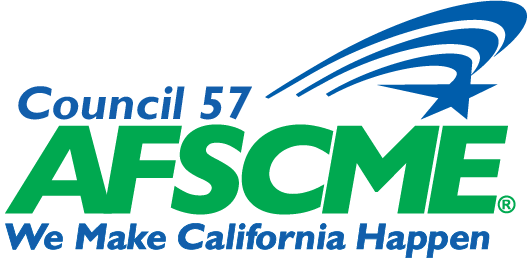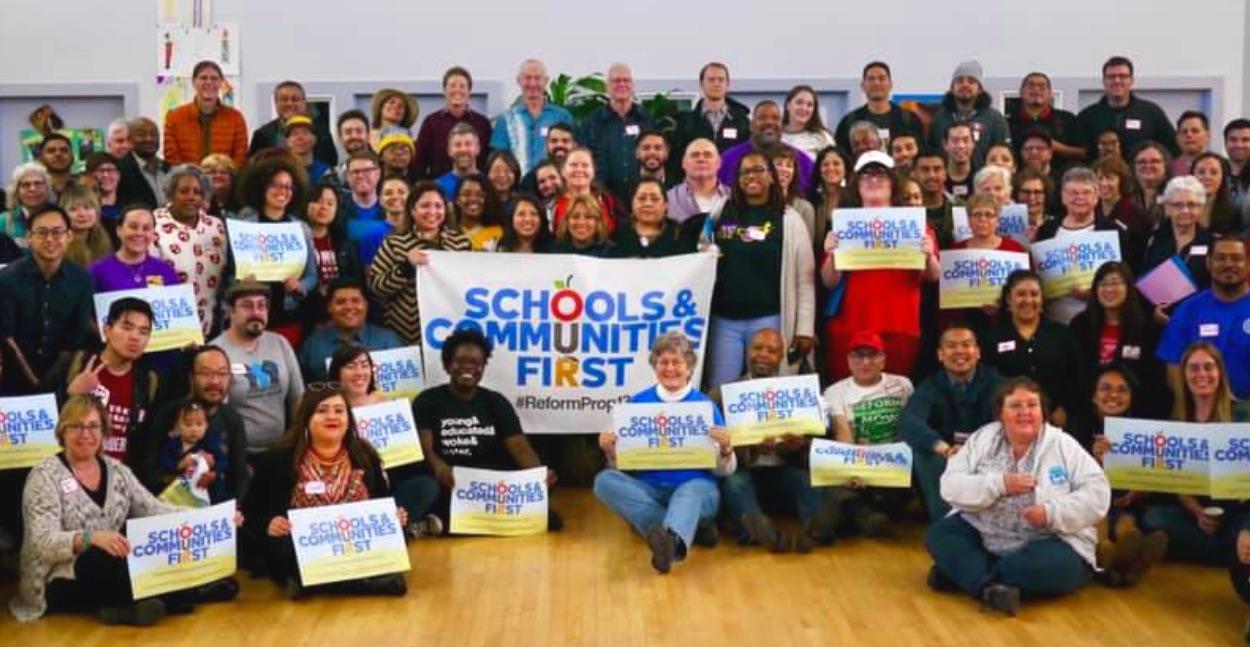We can STOP big corporations from shortchanging our schools and communities.
Schools & Communities First is a November 2020 ballot initiative that will require owners of big corporations to pay their fair share of property taxes to help fund our schools and communities.
Because big corporations and wealthy investors aren’t paying their fair share of property taxes in California, the result is California ranks 39th compared to other states in school funding and ranks last with the largest class sizes and fewest counselors per student. Together, we can change that.
Voting Yes on Prop. 15 (Schools & Communities First) will do the following:
- Reclaim over $12 billion per year for K-12 education, community colleges, and critical services for local communities
- Nearly 80% of the reclaimed revenue would come from just 6% of big corporation properties
- End shady schemes and closes loopholes that big corporations use to avoid paying their fair share of property taxes
- Homeowners, renters, and small business owners remain fully protected under Prop. 13
FAQs About Schools & Communities First
Why is Schools & Communities First important?
For more than four decades, many wealthy investors and big corporations have not been paying their fair share, causing California’s school and local community funding to fall behind — including to tackle issues such as homelessness and affordable housing, safe drinking water, and public health services (to combat health crises). California now has the most overcrowded classrooms in the U.S. and some of the worst ratios of counselors, librarians, and nurses per student. Meanwhile our local communities are on the front lines of big challenges like fire safety, housing and healthcare without the needed resources.
Who will be impacted by Schools & Communities First?
A handful of the largest corporations and wealthy investors — like oil giant Chevron — that will no longer be able to exploit property tax loopholes that shortchanges our schools and local communities. This ballot measure does not affect homeowners, renters, agricultural land, and the vast majority of small businesses.
Where does the money go?
Roughly 40% of the funds will go to education, like K-12 and Community Colleges, and 60% will go to fund critical services in our local communities, such as affordable housing, reducing homelessness, disaster and emergency response, and other critical programs.
How will Schools & Communities First impact small business?
Schools & Communities First is good for small businesses — it implements new tax relief for small businesses and exempts all small businesses whose property is worth $3 million or less. And nearly half of small businesses are home based and since SCF exempts all homeowners, they would be completely exempt. Older, big corporations use loopholes to avoid paying current property tax rates and have an unfair advantage over new businesses.
How will Schools & Communities First impact farms and agricultural lands?
The Schools & Communities First measure exempts all agriculture and commercial agriculture from any changes. This means agricultural properties such as grazing land, barns, orchards, and more are completely exempt from any changes. It also exempts open space, so that farmland which is held without production would also be exempt.
California is already a high tax state. Why do we need this change?
This is inaccurate: California’s state and local business taxes are lower than the national average, lower than New York and Texas, and 37th in the nation, according to the US Chamber of Commerce — and will stay that way when Schools & Communities First is implemented. Schools & Communities First maintains California’s low property tax rate — 1% of assessed value, one of the lowest in the nation. It’s important to remember that many of California’s most profitable and innovative companies already pay fair market value. When big corporations don’t pay their share to support our local schools and communities, we are the ones who get nickel and dimed with higher fees and taxes to make up the difference. Schools & Communities First will make sure corporations pay their share just like we pay ours.
Won’t this be hard to implement?
Nearly every other state in the country regularly assesses commercial property based on fair market value, meaning the Schools & Communities First initiative will finally bring California into the 21st Century.
We carefully thought about implementation in consultation with the Assessors, the Board of Equalization, and local officials. Schools & Communities First allocates funding for implementation, provides flexibility in roll out and will phase in implementation over the number of years that a state Task Force deems necessary.
Schools & Communities First explicitly provides an outline for the changes. Namely:
- The measure makes sure that assessors have sufficient resources to ensure the success of the measure.
- Flexibility for local assessors to prioritize the relatively few older, larger properties that account for the vast majority of lost revenue.
- Additionally, vast improvements in software and other technology have made assessments more efficient and cost-effective. Again, nearly every other state in the country regularly assesses commercial property at fair market value, so there’s no reason that California can’t do the same.
How often will the property taxes be reassessed, and how is that different from now?
Every 3 years. Again, this won’t affect homeowners. Currently, all property in the state is assessed for tax purposes at its market value at the time of ownership change, generally the purchase price, plus an increase for inflation that is capped at 2% per year.
Will you join us in supporting Yes on Prop. 15? Sign our commitment card today
Learn more about the Schools & Communities First initiative at Yes15.org.

